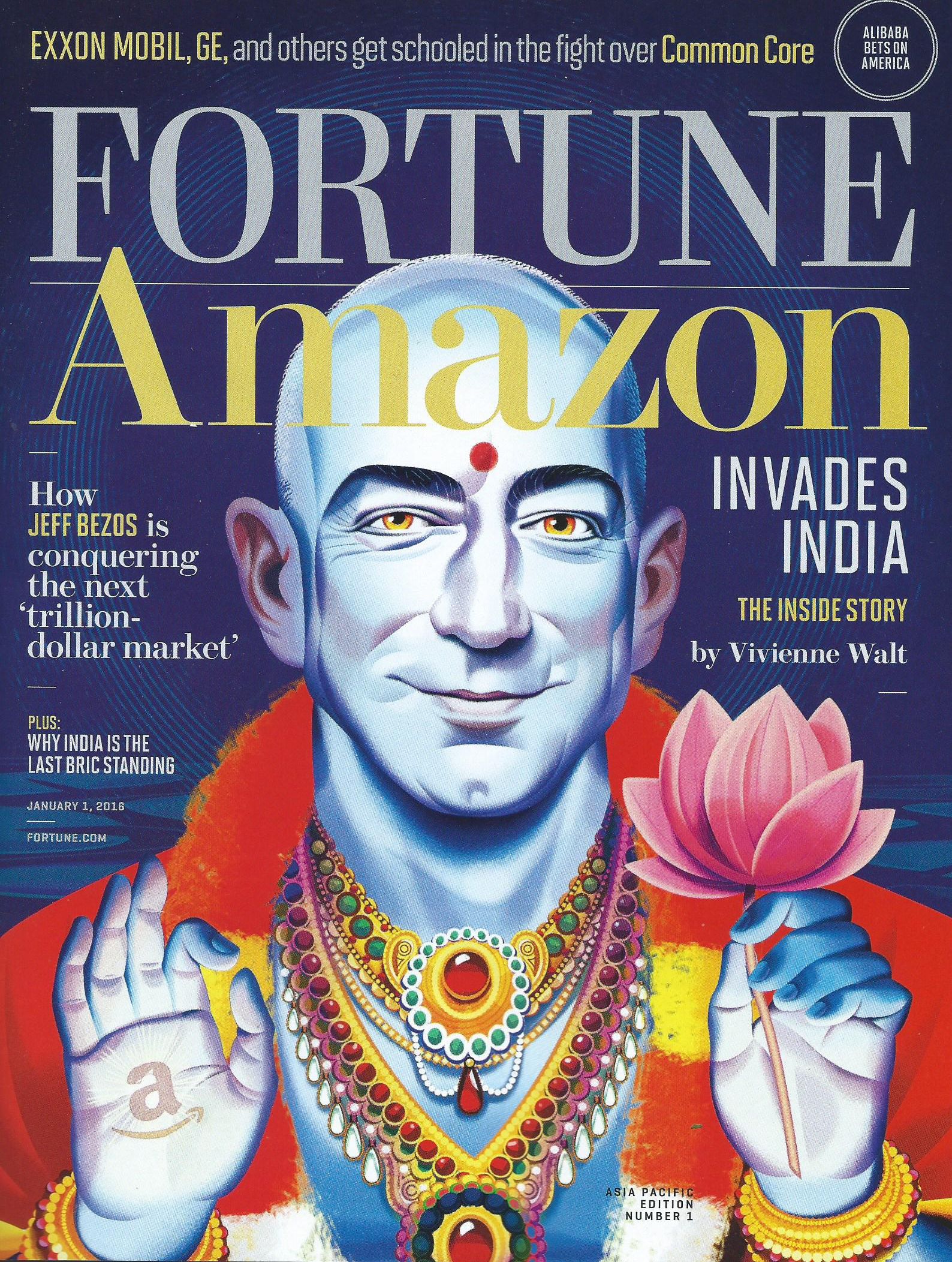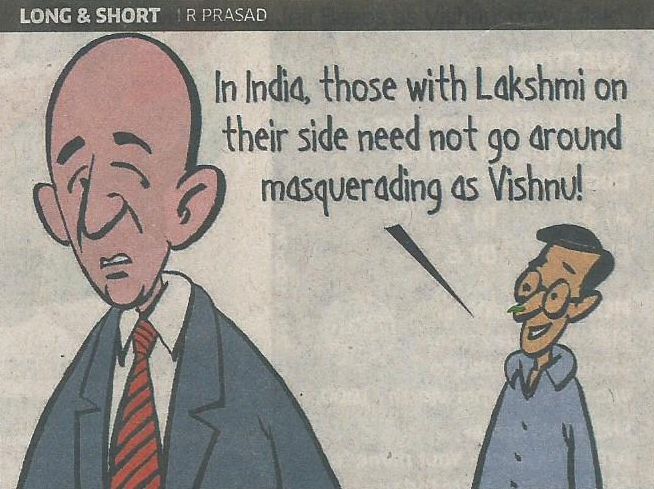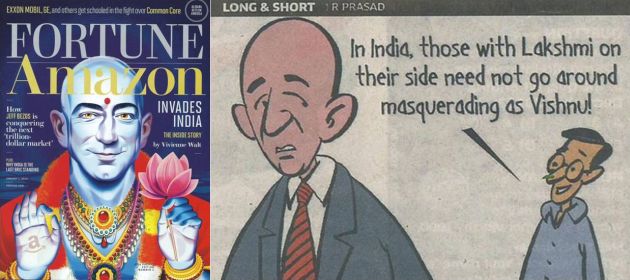
I was stunned when I saw the latest issue of FORTUNE magazine.
Titled “Amazon Invades India”, the cover features Jeff Bezos as the Hindu Lord Vishnu. Bordering on the sacrilegious, the illustration violates the Hindu stricture against depicting human beings as Gods. If the term “invades” – an obvious throw back to the colonial era – sounds less offensive, it’s only in comparison with the irresponsible graphic.
I was not the only one. Click here, here and here for rants by leading publications against this cover.
There’s nothing new about sensational journalism. Fifty years ago, a vernacular newspaper in the South Indian language Tamil shot to prominence by printing a bold headline “Man Bites Dog”. Tabloids like SUN in the UK and Bild in Germany – among countless others all over the world – have mastered this format of print journalism. With digital media, page views seem to count more than quality of reporting, giving rise to rampant use of headline and click bait.
But I always thought that a venerated publication like FORTUNE would stay above this. I first began to have doubts when I noticed that the magazine was changing in recent times in ways that were not for the better. The latest cover totally shattered my belief.
That some illustrator would think up of such a sensational picture doesn’t surprise me. But I can’t fathom how it could go up the chain of command and get approved for publication. Or, is this further proof that publishers are increasingly becoming like like social networking sites that merely connect writers (“content producers”) and readers (“content consumers”) with one another without verifying the appropriateness of content?
As a student of consumer behavior, I felt that, over time, people would forget the artist and only remember the picture, linking the offensive portrayal directly with Jeff Bezos.
But I didn’t imagine the association would happen so soon: The very next day, India’s leading business newspaper, The Economic Times, carried the following tongue-in-cheek cartoon:

The marketer in me was wondering if the negative association would have an adverse effect on Amazon’s ambitious expansion plans in India. And, if so, would the ecommerce giant register a note of protest with FORTUNE or, worse still, sue the magazine for libel.
For now, the magazine seems to have dodged the bullet by issuing an apology for this fiasco.
The cover of Fortune’s January 2016 international edition featured an illustration of Amazon CEO Jeff Bezos as a Hindu deity. Neither the artist nor the editors of Fortune had any intention of parodying a particular deity or of offending members of the Hindu faith. It is clear that we erred and for that, we apologize.
Only time will tell if we’ve seen the end of this incident.


